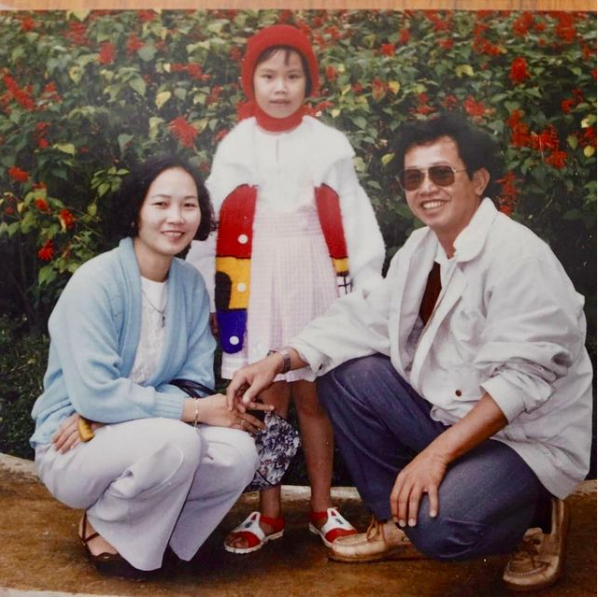Hanh Duong went on her first scientific field trip when she was just seven years old.
Her father, Duong Nhut Long, is a professor at Cantho University in Vietnam and an aquaculture scientist. As a child, Hanh often accompanied him on his visits to local fisheries.
“He was solving real world problems, talking to people and seeing the world,” Hanh recalls.

Hanh was enthralled. She knew that's what she wanted to be – a scientist. She followed in her father’s footsteps when she chose to leave Vietnam for her higher studies. Hanh would complete her master degree while working as a researcher at the Korea Institute of Science and Technology.
She then moved to Australia and received her PhD from University of Technology Sydney in 2020. Hanh joined a small group of women in quantum, focusing on creating quantum light emitters from 2D materials such as hexagonal boron nitride. But Hanh found one of her strongest role models while doing a postdoctoral stint at ETH Zurich. She was supervised by Professor Rachel Grange.
“Rachel had three children, but she still managed to have a very successful career as a professor,” Hanh says. “I thought, 'ok, if she can do that, maybe I can too.'”
Hanh returned to Australia in 2022 with the CERC postdoctoral fellowship. She is now a postdoctoral fellow within our manufacturing business unit, where she focuses on quantum technology. It’s her biggest adventure so far.
Quantum possibilities
Hanh's research is focused on exploring the untapped potential of unconventional two-dimensional (2D) materials including metals and metal oxides. She wants to see how they can be utilised in the creation of next-generation quantum technologies.
One of her major research projects involves integrating 2D materials with superconducting devices to develop the world's smallest and most sensitive quantum sensors. The sensors will be about 100 times thinner than a human hair. It will require a combination of advanced fabrication techniques and the development of new 2D superconducting materials.
"Significantly shrinking the size of quantum devices will allow us to offer many versatile functionalities," Hanh says.
She says the devices could allow for very sensitive measurements of electrical currents and magnetic fields. Applications would include everything from computing to cryptography, simulations and sensors.
"My interest in quantum technologies really stems from the potential they have for so many disruptive applications," Hanh says. "They can revolutionise many industries. They will also create many new jobs and career roles for people, some of which I hope will lead to more women in quantum science."
Women in quantum
What Hanh loves most about working with Australia's national science agency are the opportunities to collaborate.
"That environment is generated by the managers and my colleagues here. We’re also exposed to various industrial partners,” Hanh says.
"But there is a lack of women in the field. The number of women in quantum is increasing, but I still feel like I don't see many. It can be isolating."
Hanh says girls weren't encouraged to pursue careers in STEM (science, technology, engineering and mathematics) in Vietnam. Another concern is how to balance family and work life, "it’s a very demanding technical career," Hanh says.
This meant she chose to leave her country, her family and settle in Australia. She's had to learn English and taught herself a lot by watching documentaries (for academic purposes) and The Big Bang Theory (for casual conversations).
Knowing all the barriers women face has made Hanh a passionate advocate.
“There are a lot of cultural factors that can generate a belief in women and girls that they cannot be in STEM," Hahn says.
"But I really want to encourage women to become scientists. I want them to recognise that there are no limits to what they can achieve.”
